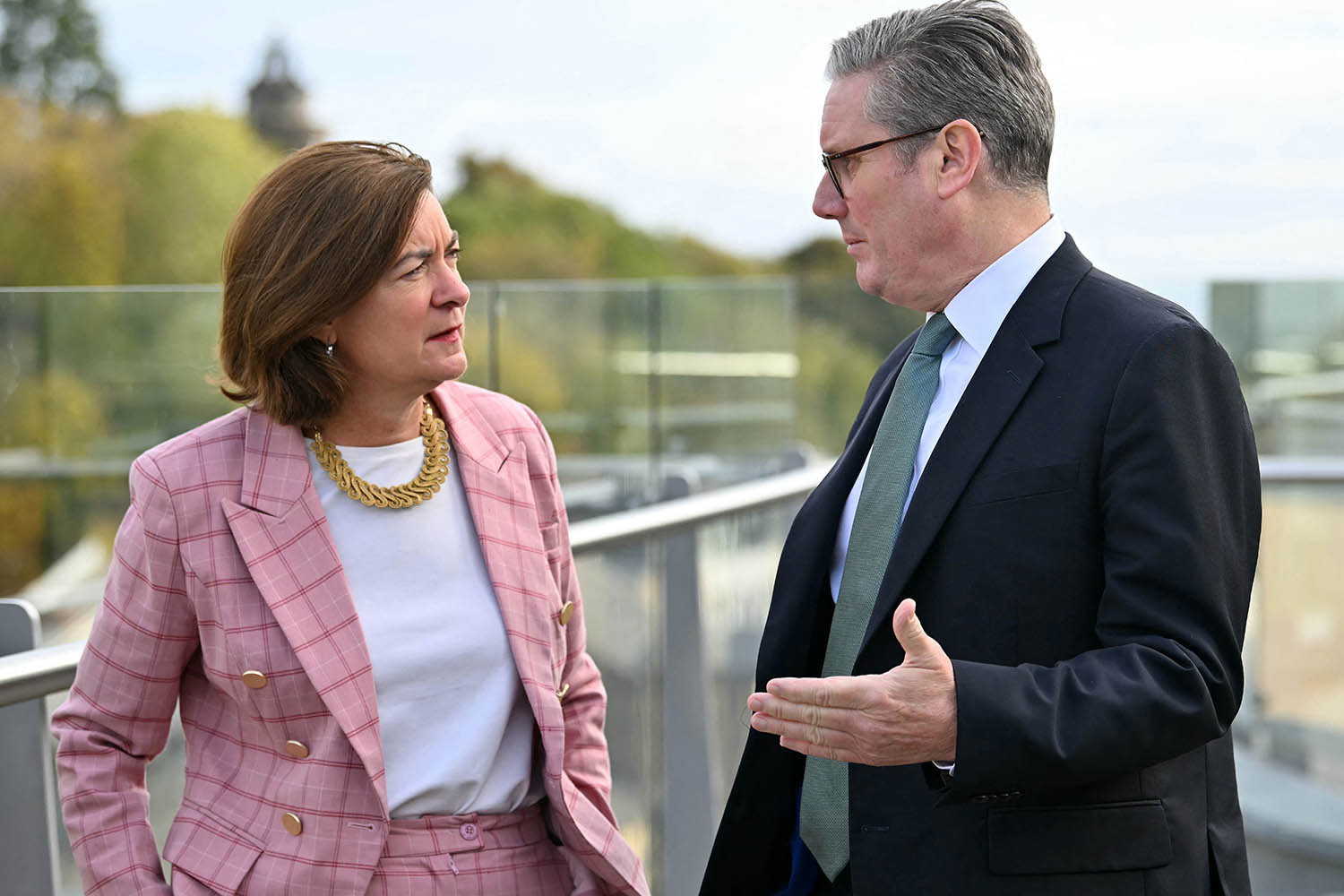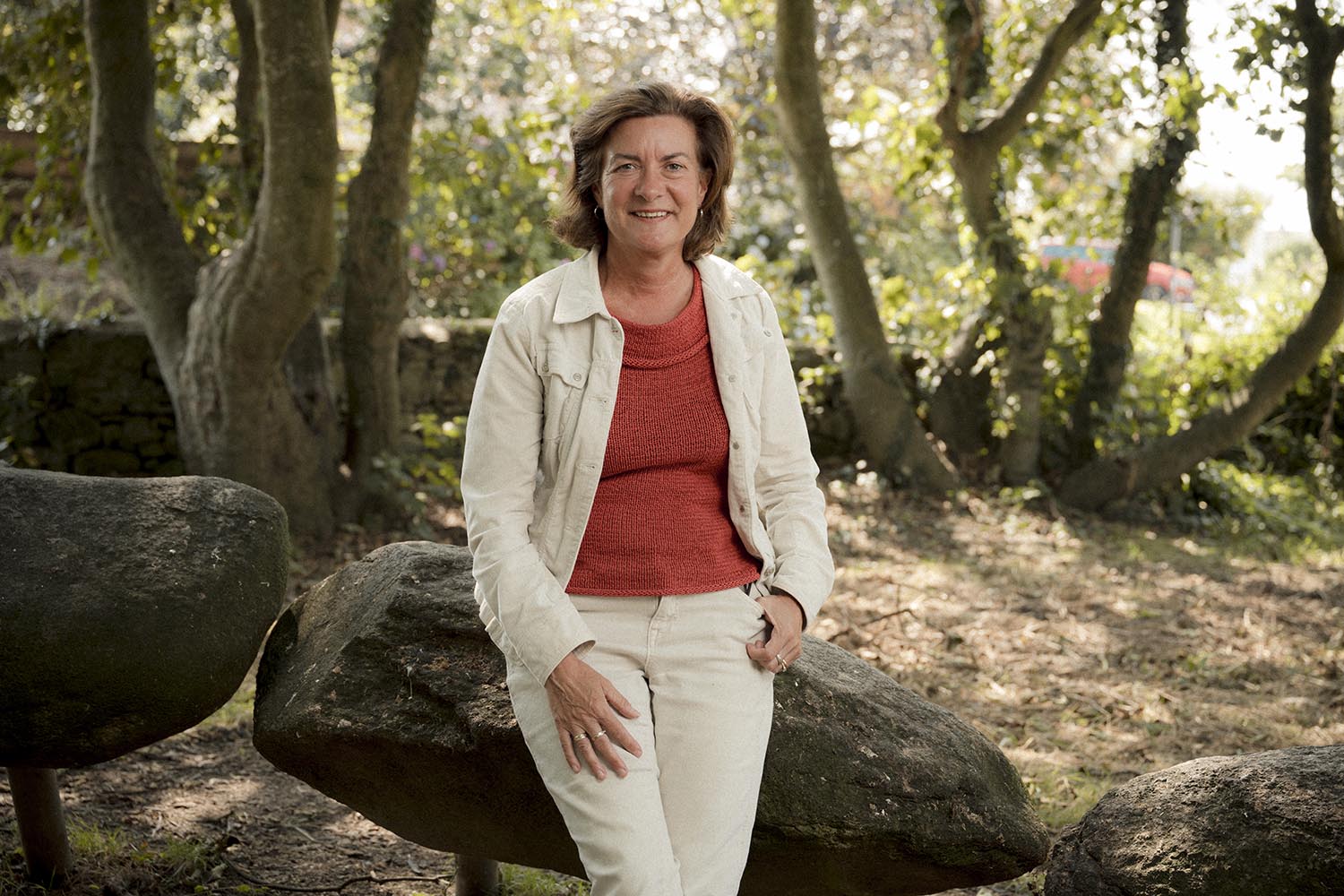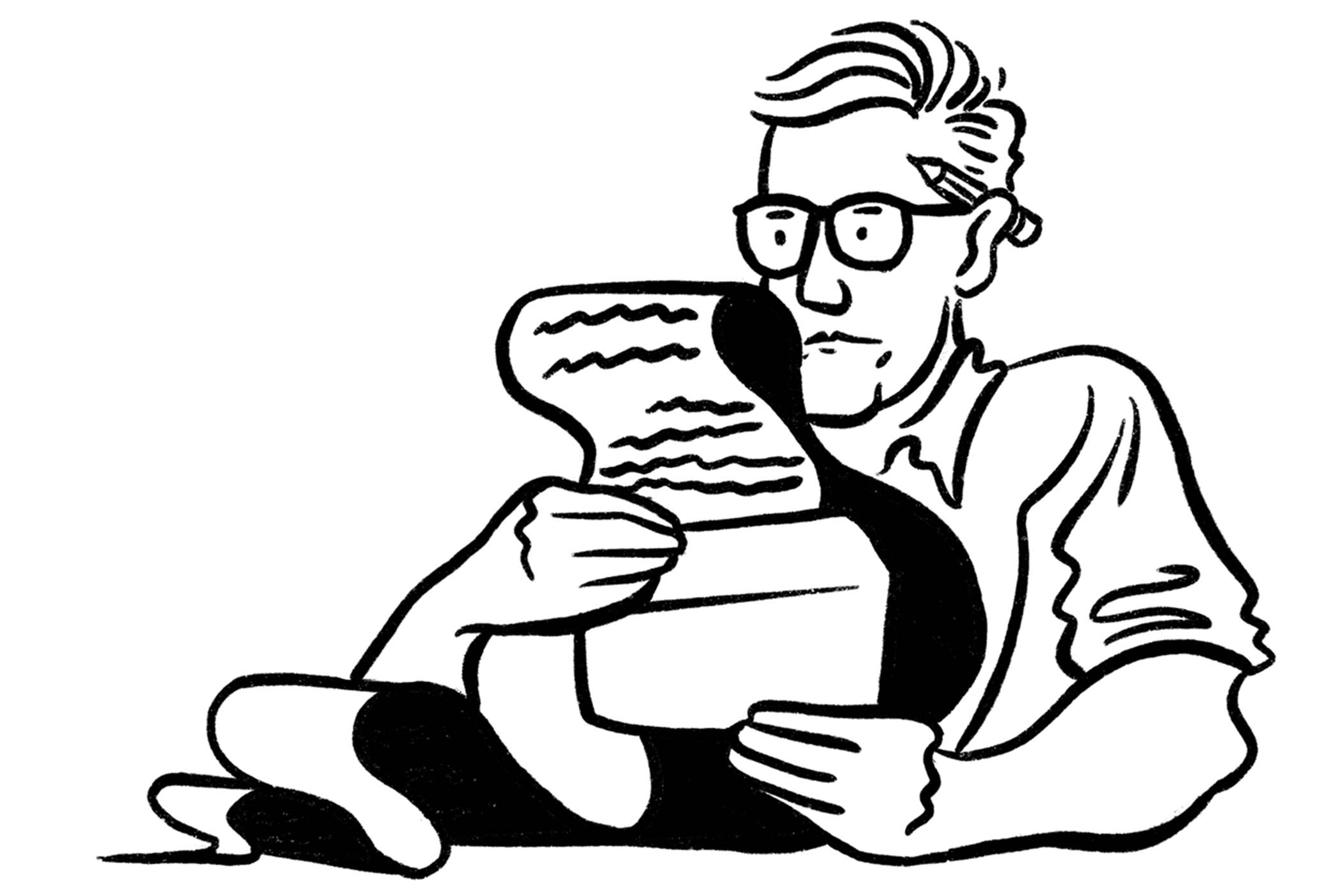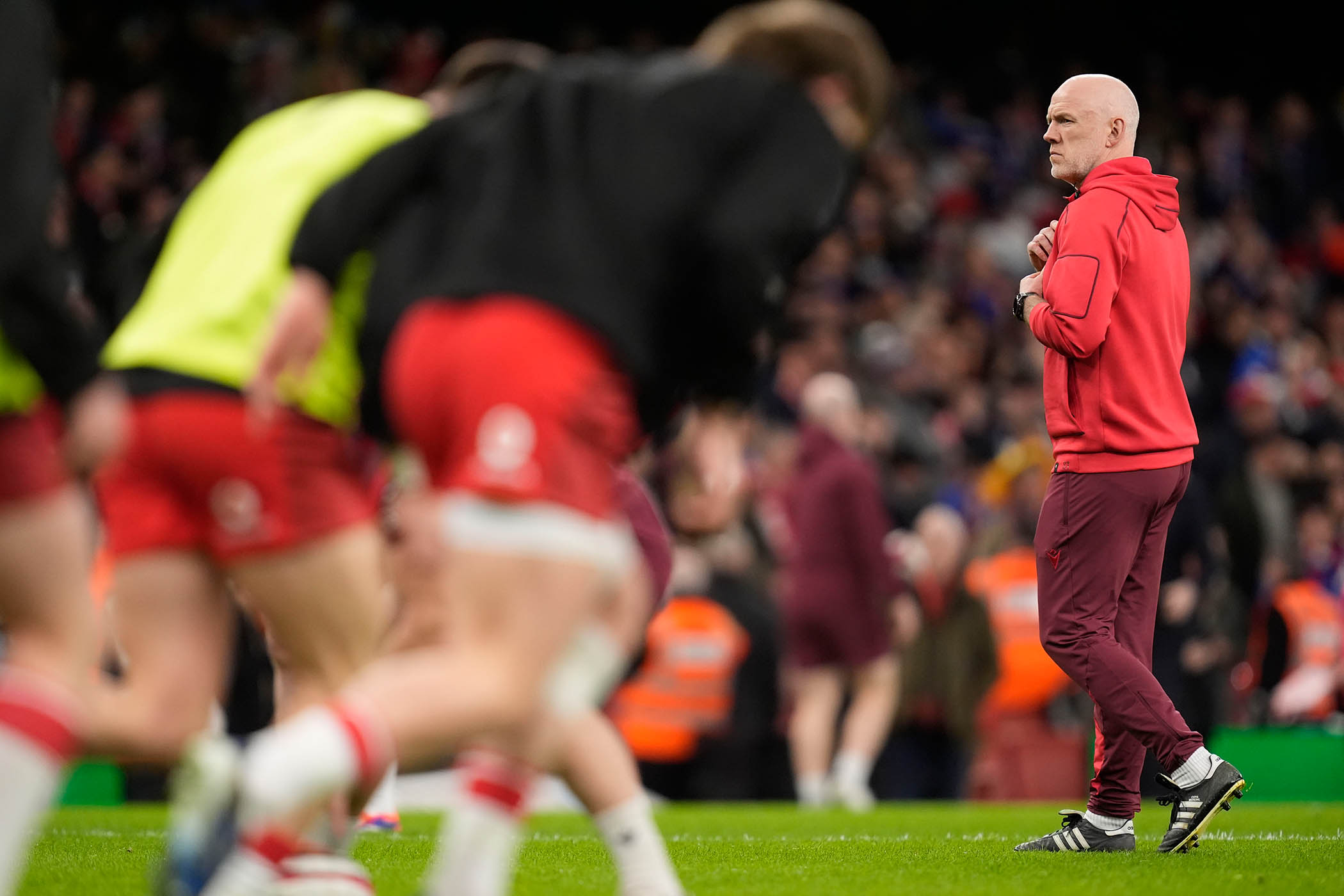Like Keir Starmer, Eluned Morgan, Labour’s leader in Wales, is under attack from both left and right. With Reform UK and Plaid Cymru rising in popularity, Labour is in third place in the polls and could lose power for the first time in 26 years in the Welsh elections next May.
“We recognise that we’ve got a challenge on our hands,” Morgan says. “Reform is a serious threat.”
The first minister’s solution, however, is very different from the prime minister’s approach to Nigel Farage. “We’ve been very clear we’re not chasing Reform,” she says. “We have to make sure we deliver for people.”
While ministers at Westminster make daily announcements designed to look tough on immigration, Morgan insists immigrants are “valued and valuable” in Wales. “We’ve got about 6% of people from ethnic minority backgrounds, but almost 50% of doctors and dentists were not trained in Britain,” she says. “Our health system would collapse without immigration and it’s really important for us to make the case.”
The first minister defines her distinctive message as the “red Welsh way”, which means focusing on “community cohesion” and “justice” as well as economics. “I think generally we’ve been more to the left in Wales,” she says.
She was critical of Starmer’s welfare reforms. “I was very clear the winter fuel allowance [change] was a problem.” She also opposed the government’s proposed changes to disability benefits. “I didn’t think the approach was going to meet the outcomes that they wanted.” And she is adamant that the two-child benefit cap should be scrapped. “We were consistent in relation to that under the Tories, so I can’t change my mind now we’ve got a Labour government.”
Like her friend and former Labour leader Neil Kinnock, Morgan would like the rich to be squeezed harder in Rachel Reeves’s autumn budget. “I would definitely like to see us explore a wealth tax,” she says. “I think the people with the broadest shoulders should take more of the burden.”
She was “one of the first” to call for the UK to recognise Palestine while No 10 was still prevaricating. “I think anybody who watches the pictures on telly every night is ashamed and appalled. This is our Rwanda. Our generation will be judged on how we handle this and at the moment we’re going to be found wanting.”
And Morgan, a former MEP, wants the “closest possible relationship” with the EU, which could mean rejoining the customs union or the single market. “We’re paying a massive price, particularly in Wales, because our exports have collapsed as a result of Brexit,” she says. “We would be better off if we didn’t have the restrictions on exports.”

A year after becoming first minister, Morgan is determined to differentiate Welsh Labour from the national party. “What’s right for Essex is not going to be right for Barry,” she likes to say. “We’re a broad church and that’s OK. I’ve always been very happy to have discussions and disagreements, then you carry on.”
She is clearly frustrated by the Starmer’s failure to communicate a clear message. “We’ve got to be unashamed of our values but I also think we’ve got to learn to speak in a language that people can relate to. We talk so much about growth – what does that actually mean to somebody who’s living on a council house estate?” she says.
“I think there’s a danger of falling into a kind of managerialism, rather than understanding your job is to be a politician.”
With Labour slumping in the polls, Morgan’s job is on the line. Wales voted for Brexit and Farage is snapping at her heels. Last month, Reform got its first Senedd member when Laura Anne Jones defected from the Tories. The new proportional voting system being introduced next May will make it easier for smaller parties to pick up seats.
I was aware that when you’ve been in power for 26 years there’s a real danger that you lose the connection
I was aware that when you’ve been in power for 26 years there’s a real danger that you lose the connection
Newsletters
Choose the newsletters you want to receive
View more
For information about how The Observer protects your data, read our Privacy Policy
“It’s the politics of protest rather than anything constructive,” Morgan says. “Nigel Farage came to Wales, and he obviously doesn’t understand Wales at all. He wants to reopen the pits. There aren’t many people who want their grandchildren to go down the pits, in fact we’re trying to clear up the scars of the industrial revolution.”
She points out that Ukip, a previous Farage party, won seven seats in the Welsh assembly in 2016. “By the end of the first term, six of them had left the party and joined three different parties. We know that they fall to pieces once the rubber hits the road.”
The nationalists in Plaid Cymru are, though, as great a challenge. Morgan insists Wales is different from Scotland, where Labour’s political dominance was demolished by the Scottish National Party. “We’ve always wrapped ourselves in the Welsh flag – that’s very different from what Scottish Labour did,” she says. But after almost three decades in power, it is hard for her party to seize the mantle of change. “The first thing I did when I came in was I went out and listened to people, because I was aware that when you’ve been in power for 26 years there’s a real danger that you lose the connection.”

We meet at a cafe in St Davids, where Morgan brings her 93-year-old mother, who has Alzheimer’s, every weekend for coffee. As she shows me around the UK’s smallest city, we walk past the pub where her daughter is drinking in the garden and down to the cathedral where the first minister got married. “This village has got 1,700 people who live here in winter and I’m related to about 70 of them,” she says.
Her family is from Pembrokeshire but she grew up on a council estate in Cardiff. “My upbringing totally shaped my values. My dad was the vicar and it was an open house. The kind of people who were coming in were clever and able but they weren’t getting the opportunities.”
As a child, Morgan was vilified for attending a Welsh-speaking school. “They used to throw stones at the bus.” Now she wants a million Welsh speakers by 2050 – currently there are estimated to be around 900,000. Her parents were Labour councillors – and party grandees including Jim Callaghan, Ann Clwyd and Rhodri Morgan often sat around the kitchen table – but she won’t be including a photograph of Starmer on her election leaflets.
“On my Labour party membership card, it says ‘Country first’ – and for me that means Wales.”
Photographs Francesca Jones for The Observer, Getty



